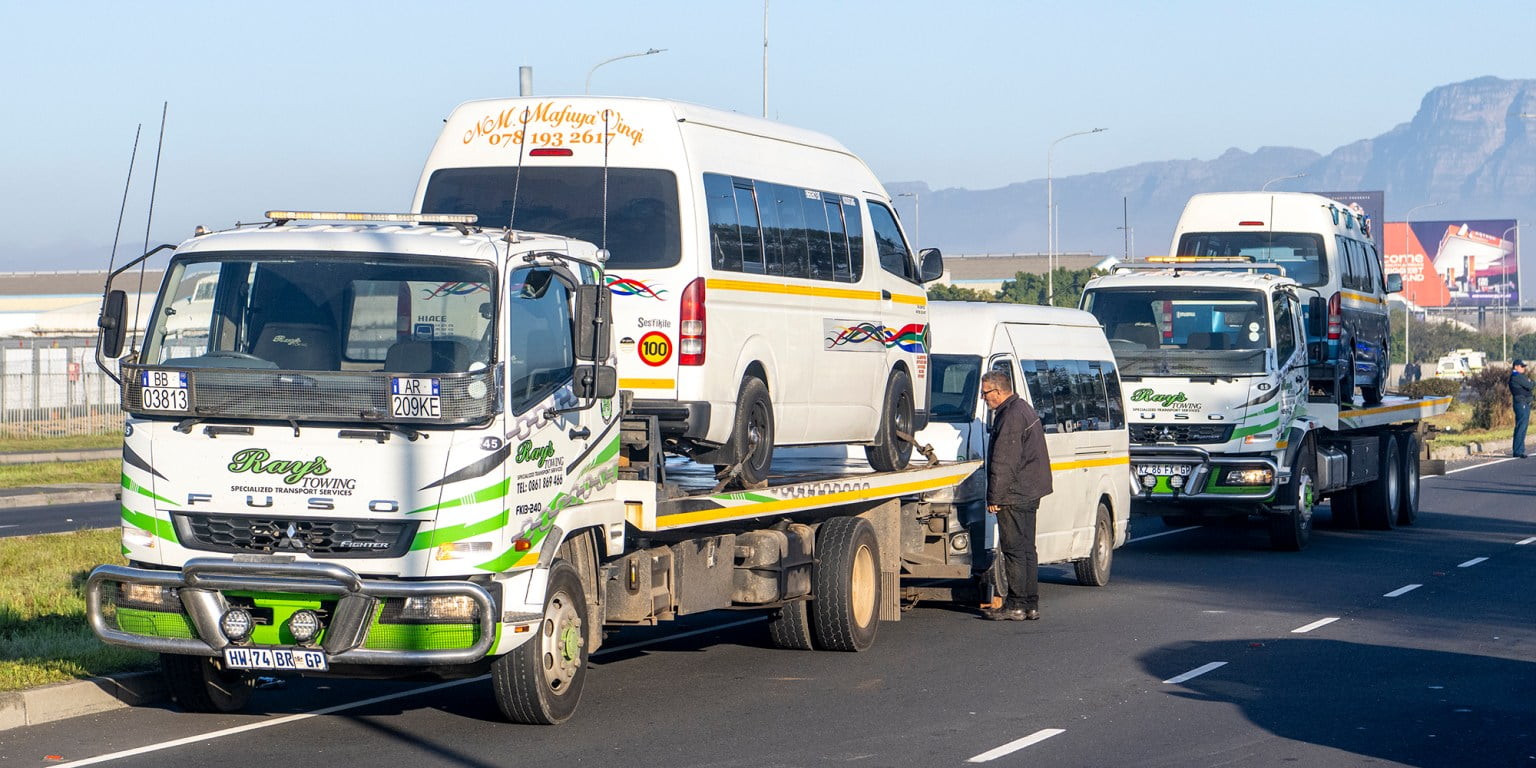
The minibus taxi task team (MBTTT) has set a four-week deadline to work out the remaining sticking points related to minibus taxi operating licence transgressions.
This follows a three-day imbizo which was hailed as productive by the City of Cape Town, the Western Cape government and the South African National Taxi Council (Santaco).
All three parties and the National Department of Transport were present to work through the enforcement consequences for each of the operating licence conditions that needed reviewing.
In a statement released on 31 August, the MBTTT confirmed that, “Through extensive consultation and earnest deliberation, we have found common ground on what are fair and rational consequences for most of the operating licence condition transgressions.
“Underpinning this exercise is the mutual priority to address fundamental challenges in the transport sector and deliver functional, reliable, safe mobility for our commuters.
“We have committed to completing this task within a four-week period, starting today, 31 August 2023, and will redouble our efforts to find common ground on the outstanding points of disagreement”.
Tensions unresolved
Relations between the parties apparently continue to improve, based on meeting updates. There was, however, one incident where Santaco WC chaiperson Mandla Hermanus said he could not promise that the devastating eight-day taxi strike was going to be the last.
“If you (taxi operator) have a warrant of arrest don’t sleep at home,” said Hermanus. “They come at 2am to arrest you, because the Western Cape government is hellbent on terrorising us. Difficult times are still coming, the last taxi strike was not the first and it is clear now it was not the last.”
Hermanus was speaking at the funeral of taxi owner Joseph Mkhele who was fatally shot at the airport approach by a motorist who, according to police, had his car pelted with stones. In return, the motorists fired shots at the group resulting in the death and injuring three others.
Mayoral committee member for Safety and Security JP Smith explained that they have now begun tracing operations and are enforcing the Warrants of Arrest.
“From January until June this year, we have already arrested around 2,000 offenders who have simply ignored their outstanding traffic fines,” he said. “Out of the 19 we arrested on Thursday night, one had 33 outstanding fines, another had 55 and the top offender with 77 outstanding fines.
Aditya-L1: India successfully launches its first mission to the Sun
“We will continue with these operations on a monthly basis, tracking down each and every outstanding Warrant of Arrest.”

Taxi dependency
Minibus-taxis play a huge role in the overall transport network. The province and its people are recovering from the violence and damage caused by the one week long stay away taxi strike that claimed lives and stalled the progression of the province.
Commuters continue to stand in endless queues for a seat in a taxi not because they are thrilled that the services are back, but because taxis are most accessible to them.
On Thursday 3 August, there was a sudden withdrawal of taxis all over Cape Town to signify the beginning of what would be a brutal taxi strike that some described as a “cold war”. Commuters were left stranded and had to seek other alternatives to get home. Some walked home while others wrestled for a seat on overloaded buses , desperate to get home.
The taxi industry neglected its commuters in a fight to boycott the operating licence conditions. The return of taxis on Friday 11 August announced the resumption of the province’s operations, including education which was severely interrupted as learners battled to attend school.
Commuting from the Nyanga rank
Zandile Zihlangu, a commuter from Nyanga shared that, “I would not necessarily say I trust [the taxis] but because we have no other way for use in order to get to work, we go back to them”.
Zihlangu acknowledges those who have to face the spiralling bill in vehicle repairs from their cars being vandalised during the taxi strike through stone throwing and burning.
“We end up being in debt during that violence and we lose a lot because they do not pay that money upfront”.
The taxis have been operating for three weeks now since the stay-away strike but Sisipho Molefe from Nyanga remains “nervous” about taking a taxi to work as “taxi drivers appear to be aggravated”, and opts for a bus instead.
“I do not take taxis unless I have to,” she said. “I am scared to take a taxi at this point, in case anything happens, like the strike, I have been taking buses. I get nervous…I have gotten a fear of taking taxis because of how that strike actually traumatised me,”said Molefe.
Ndinani Sambokwe (18), a grade 12 student from Mbekweni had missed one week of school because of the taxi strike which interfered with his preparations for the preliminary exams. Sambokwe said, “I was definitely sceptical with the return of the taxis. I wondered about the safety measures in place”.
“One would never know if all that could have gone back to square one in an instant, but everything is normal now. The taxis are operating and everyone can travel to wherever.”
The agreement by the MBTT appears to be a meaningful step towards ensuring that minibus taxis continue fulfilling their significant role in the overall transport network whilst putting commuter safety first. But it remains to be seen whether agreements will hold and peace will last.












